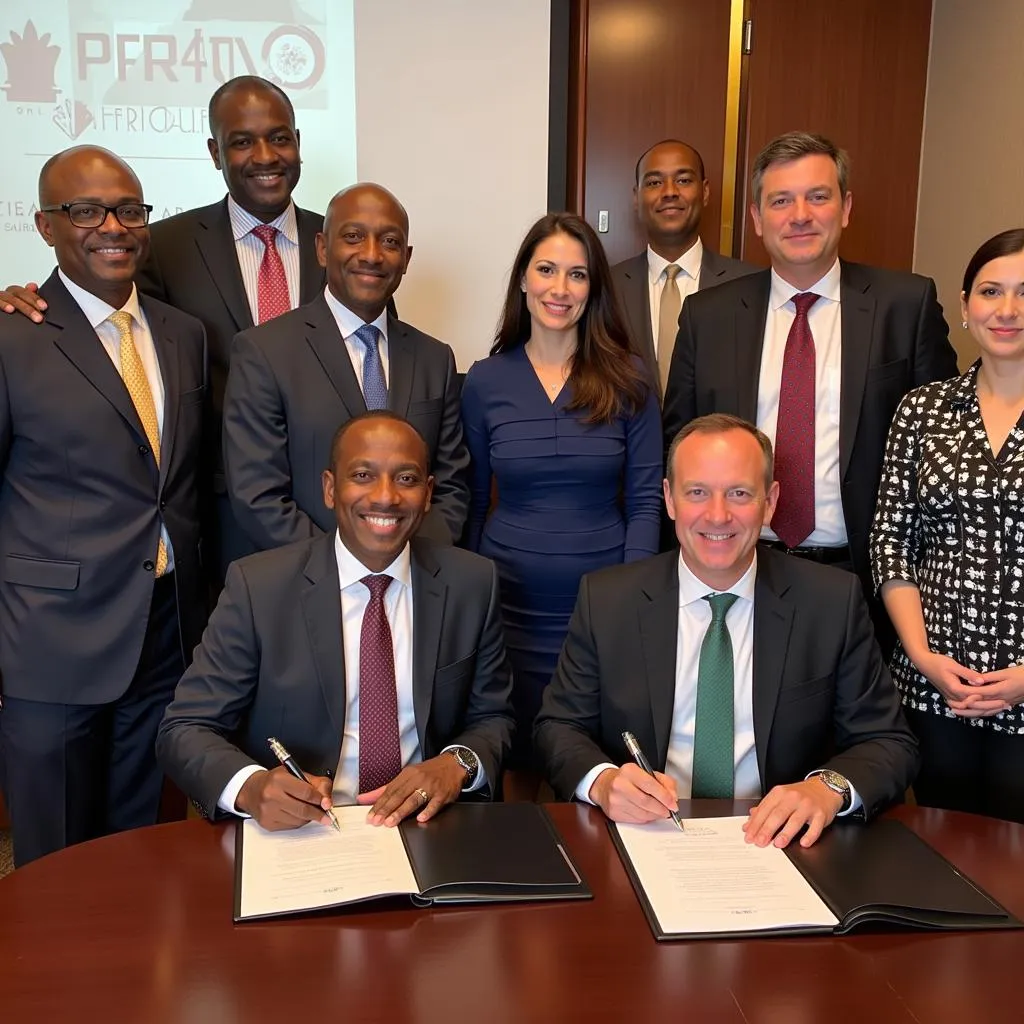The African Continental Free Trade Area (AfCFTA): A Game-Changer for Economic Integration
The African Continental Free Trade Area (AfCFTA) is a landmark agreement that aims to create a single market for goods and services across the African continent. It is the largest free trade area in the world by the number of participating countries, covering a combined GDP of over $3.4 trillion and a population of over 1.3 billion people. The AfCFTA has the potential to unlock significant economic growth and development for Africa by removing trade barriers, promoting investment, and fostering regional integration.
What is the African Continental Free Trade Area (AfCFTA)?
The AfCFTA is a trade agreement that was established by the African Union in 2018. It aims to create a single market for goods and services across the African continent by eliminating tariffs and other trade barriers. The agreement entered into force in May 2019, and has been ratified by 54 out of 55 African countries.
Key Objectives of the AfCFTA
The AfCFTA has several key objectives, including:
- Eliminating tariffs and other trade barriers: This will allow for free movement of goods and services across the continent, boosting trade and economic growth.
- Promoting investment: The AfCFTA aims to create a more attractive investment environment by providing greater market access and reducing regulatory barriers.
- Fostering regional integration: By promoting trade and investment, the AfCFTA will help to create a more integrated African economy.
- Creating jobs and reducing poverty: The AfCFTA is expected to create millions of new jobs and boost economic activity, contributing to poverty reduction across the continent.
Benefits of the AfCFTA
The AfCFTA is expected to bring numerous benefits to Africa, including:
- Increased trade and economic growth: Eliminating trade barriers will boost intra-African trade and create opportunities for businesses to expand into new markets.
- Increased investment: The AfCFTA will make Africa a more attractive destination for foreign investment, leading to increased economic activity and job creation.
- Improved living standards: The AfCFTA will help to boost economic growth and create jobs, leading to improved living standards for Africans.
- Strengthened regional integration: The AfCFTA will foster greater economic cooperation and integration among African countries, helping to build a more prosperous and stable continent.
Challenges and Opportunities of the AfCFTA
While the AfCFTA holds immense potential, it also faces several challenges.
- Implementation: Implementing the AfCFTA will require significant effort from African governments, businesses, and civil society.
- Infrastructure: Africa needs to invest in infrastructure, including roads, ports, and energy, to support the growth of intra-African trade.
- Harmonization of regulations: African countries need to harmonize their regulations to facilitate trade and investment.
- Trade diversion: The AfCFTA could lead to trade diversion, where countries shift trade from outside Africa to within Africa.
Despite these challenges, the AfCFTA presents a significant opportunity for Africa to accelerate its economic growth and development. With effective implementation, the AfCFTA can help to create a more prosperous and integrated Africa.
What Does the AfCFTA Mean for Businesses?
The AfCFTA presents significant opportunities for businesses in Africa. It will allow businesses to access new markets, expand their operations, and create jobs. Here are some key implications for businesses:
- Market access: Businesses will have access to a larger market of over 1.3 billion consumers.
- Reduced trade costs: Eliminating tariffs and other trade barriers will reduce the cost of doing business.
- Increased investment opportunities: The AfCFTA will attract more investment, creating opportunities for businesses to expand and grow.
The AfCFTA: A Key Driver of Africa’s Economic Future
The AfCFTA is a transformative agreement that has the potential to unlock significant economic growth and development in Africa. By removing trade barriers, promoting investment, and fostering regional integration, the AfCFTA can help to create a more prosperous and integrated Africa.
Frequently Asked Questions
Q: What is the main objective of the AfCFTA?
A: The AfCFTA aims to create a single market for goods and services across the African continent by removing trade barriers and promoting regional integration.
Q: How will the AfCFTA benefit African countries?
A: The AfCFTA is expected to boost trade, attract investment, create jobs, and improve living standards in Africa.
Q: What are the challenges of implementing the AfCFTA?
A: Implementing the AfCFTA will require significant effort from African governments, businesses, and civil society. There are also challenges related to infrastructure, harmonization of regulations, and trade diversion.
Q: What does the AfCFTA mean for businesses in Africa?
A: The AfCFTA presents significant opportunities for businesses in Africa, including access to new markets, reduced trade costs, and increased investment opportunities.
Q: How can I learn more about the AfCFTA?
A: You can visit the African Union website for more information about the AfCFTA. You can also find information on the websites of various organizations and institutions working to promote the AfCFTA.
 AfCFTA Agreement Signing Ceremony
AfCFTA Agreement Signing Ceremony
The AfCFTA is a vital step towards achieving Africa’s economic potential and building a more prosperous and integrated continent. It is a testament to the commitment of African leaders to a shared vision of economic prosperity and regional integration. As we move forward, it is crucial for all stakeholders to work together to ensure the successful implementation of the AfCFTA and realize its full potential.
Remember, you can reach out to us for any support you need regarding the AfCFTA. Contact us at +255768904061 or kaka.mag@gmail.com. We are here to assist you 24/7!
Disclaimer: This is a sample blog post generated by an AI chatbot. Please verify all information and facts before using it.


